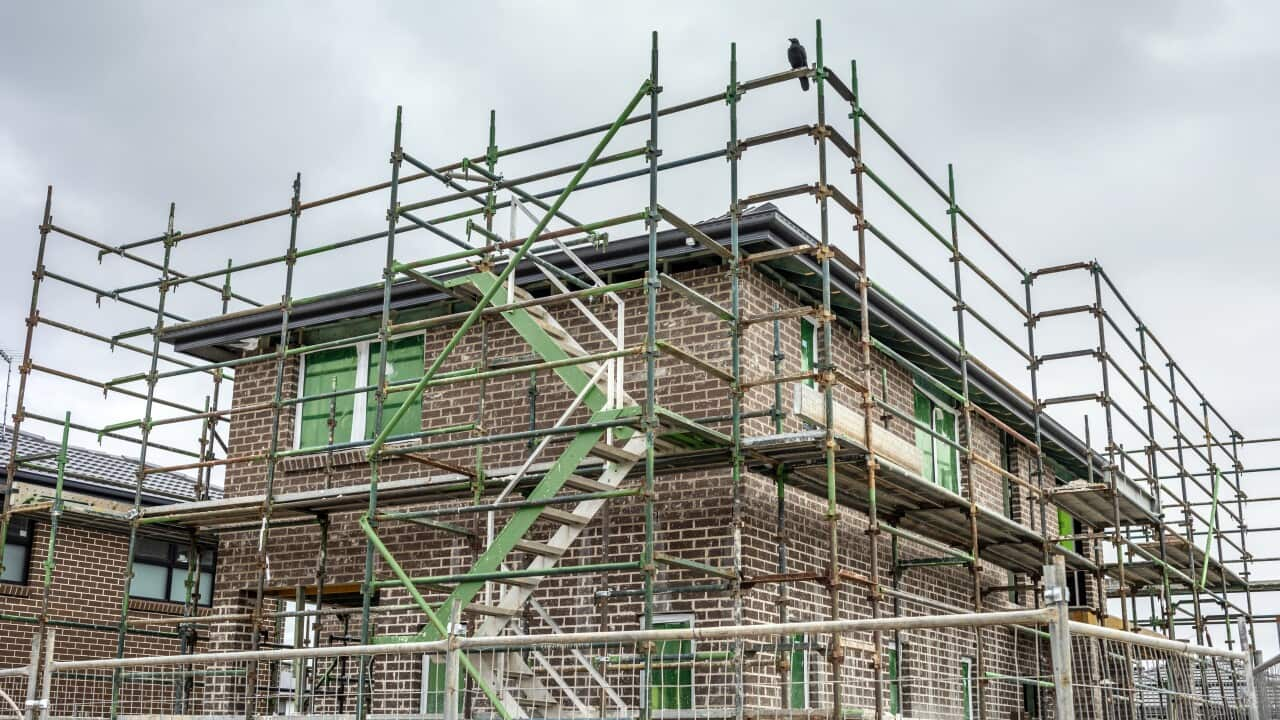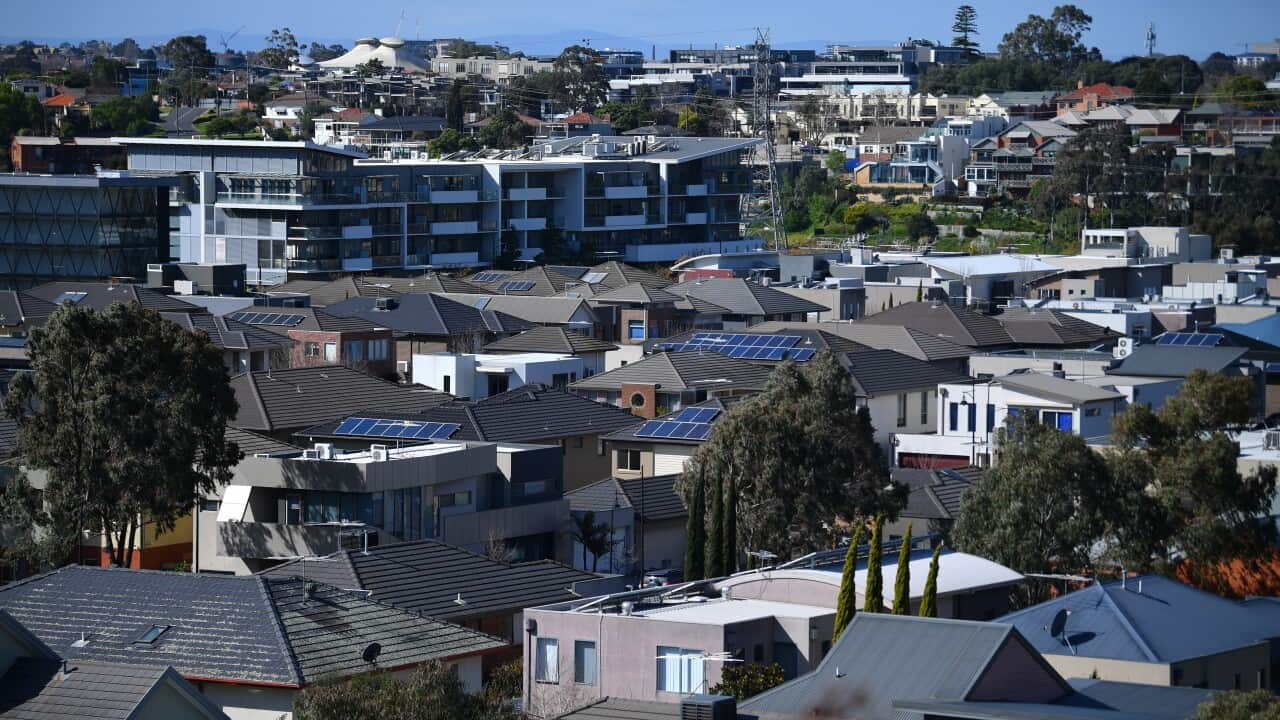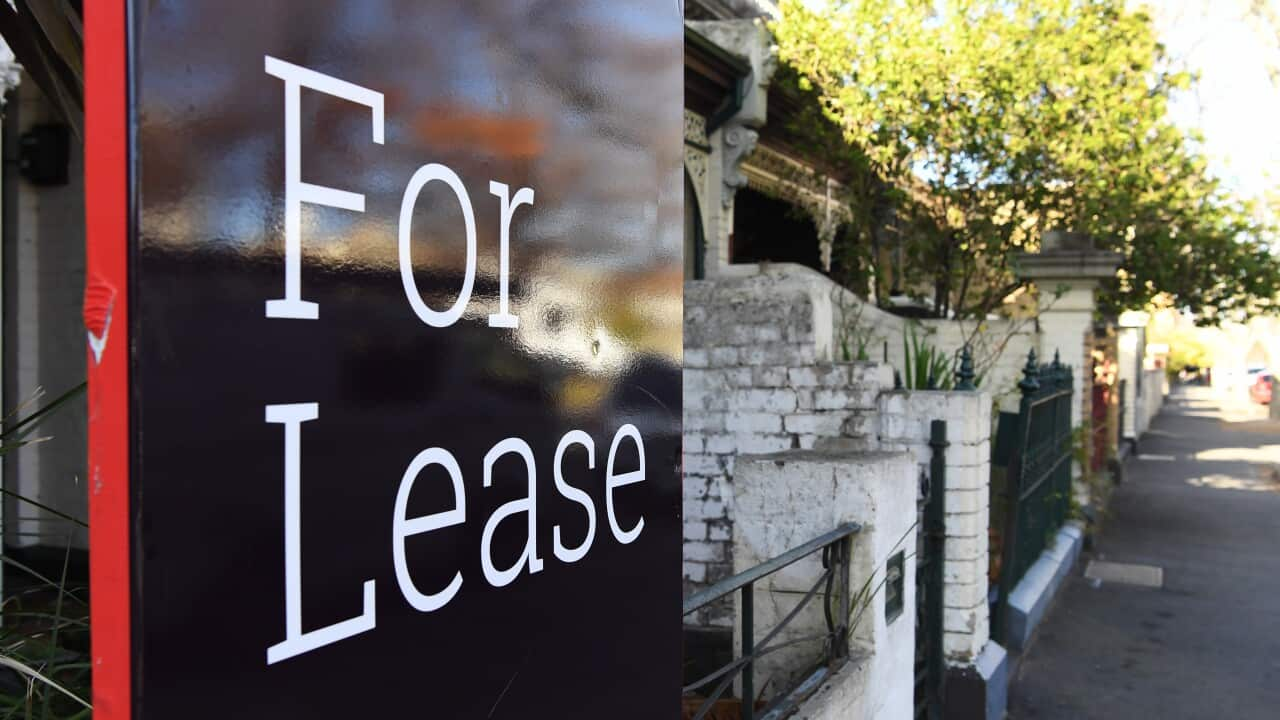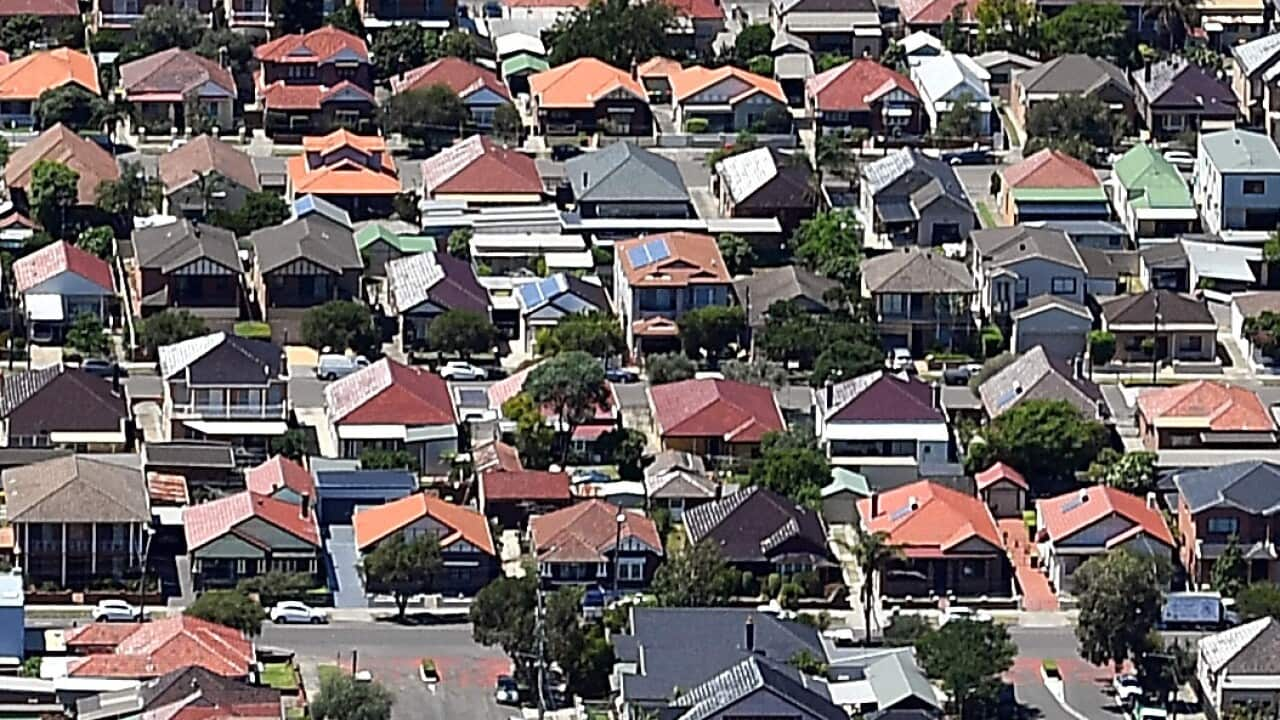Key Points
- Australia doesn't have a nationally consistent definition of the term affordable housing.
- The NSW Greens want to introduce legislation that would make it easier for households to buy a home.
- NSW Premier Chris Minns and industry experts are concerned about the consequences of forcing affordable housing.
Australia needs a clear definition for affordable housing that takes into consideration factors like income and market rent, the NSW community housing sector says.
Despite a national rush to build thousands of social and affordable homes, state and territory definitions for the sector vary widely.
Victoria includes homes bought and rented below market prices in its affordable housing stock, while South Australia caps sale prices based on location and NSW guidelines consider only rentals.
A nationally consistent definition
"We don't think that's very helpful," Community Housing Industry Association (CHIA) NSW chief executive Mark Degotardi told AAP.
"It's a good time to have a nationally consistent definition."
The call follows a a national campaign that seeks to fix Australia's housing crisis — that found affordable housing had moved beyond many Australians' reach because governments were subsidising the private market instead of building social housing.
The current mix of definitions allows private providers in some, but not all, markets and makes a tenant's income a critical factor in some but not all cases.
A balancing act
Affordable housing in some states can also be returned to the private market after a set period, a measure the Greens are seeking to end in NSW.
But NSW Premier Chris Minns cautioned on Thursday that forcing affordable housing to be permanent might have unintended consequences on the complex financing required for new housing.
"We need more off-the-plan sales to progress the pipeline of new builds," he told reporters.
"We've got to get the balance right between private, build-to-rent and social housing."
A national definition of affordable housing has support from NSW Housing Minister Rose Jackson, who put it on the agenda of the meeting of state and federal ministers.
Urban planning expert Catherine Gilbert said the vast majority of affordable housing overseas had 30-year minimums, while New York and other cities insisted the properties remained so in perpetuity.
"It's ensuring that public benefit is there in the longer term," the University of Sydney lecturer in planning told SBS.
"There is no point adding affordable housing if you're losing them at the same time."

NSW Premier Chris Minns says forcing affordable housing initiatives could have unintended consequences on the complex financing that is required for new housing developments. Source: AAP / Dan Himbrechts
NSW Greens want to legislate affordable housing
A NSW bill introduced by the Greens would, if passed, force affordable housing to be held in perpetuity, something MP Jenny Leong said was backed by Treasurer Daniel Mookhey in 2023.
"We are yet to see any moves to deliver this promise," she said.
The bill would also enshrine an income test in law to ensure eligible households cannot be charged more than 30 per cent of their income.
That rule-of-thumb measure is considered a test of housing stress, but NSW ministerial guidelines only refer to it.
The guidelines are more stringent on affordable housing rent controls, which are set at 80 per cent of market rent.
CHIA NSW meanwhile uses a lower figure — below 75 per cent of market rent — as well as the 30 per cent income test for its providers, who oversee 54,000 homes for low-income NSW families.
Economic modelling released by the organisation on Thursday showed the extent of the government's task to address the escalating housing crisis.
About $10 billion of government investment was needed over five years to put on 25,000 social and affordable homes across NSW, according to SGS Economics.












